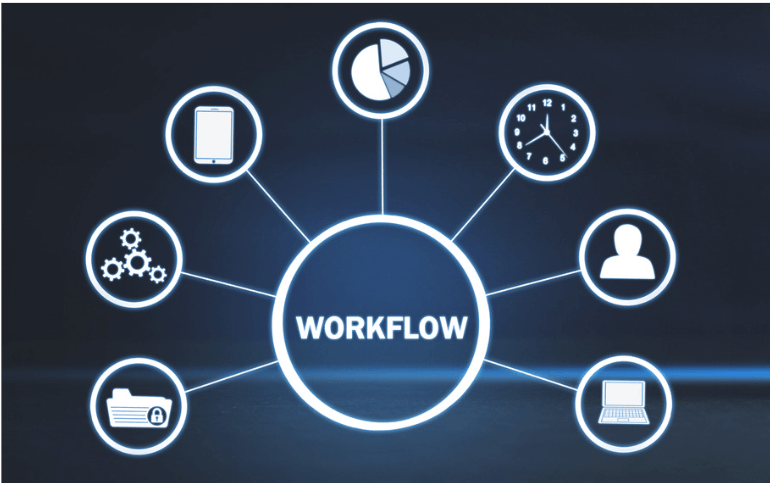Key Points:
1. Outsourcing routine accounting tasks like bookkeeping, payroll, and invoicing allows your team to focus on high-value activities, improving efficiency and client satisfaction.
2. Selecting the right outsourcing partner is crucial; ensure they have relevant experience, strong security measures, and clear service agreements to maintain control over sensitive tasks.
3. Outsourcing can reduce operational costs, balance workloads during peak times, and boost productivity without increasing staff size or overhead expenses.
4. Evaluating outsourcing outcomes regularly ensures you’re meeting efficiency goals, with measurable improvements in cost savings, productivity, and client service quality.
Accounting and finance work has increased manifold over the past few decades. With increasing compliance requirements and workload, accounting firms are finding it challenging to manage work efficiently. This is leading to delays, overtime work for employees, and poor client satisfaction. In this article, we will discuss how outsourcing certain tasks can help accounting firms improve their workflow management for CPAs and increase efficiency.
Understanding your process
The first step for any accounting firm that wants to improve efficiency through outsourcing accounting tasks is to understand its existing processes and workflows. Firms should map out each task or project from start to finish.
This will help identify areas where work can get stuck or take more time than needed. It will also show peak and non-peak periods where outsourcing bookkeeping tasks can help balance workloads. For example, a firm may find that filing tax returns is slowing down their busy seasons. In contrast, accounts receivable tasks take less time in off-seasons.
Deciding what tasks to outsource

Once processes are mapped, the next step is to decide which tasks are best suited for outsourcing accounting services. Typical tasks that accounting firms commonly outsource include bookkeeping, invoicing, accounts receivable/payable, payroll processing, and basic taxation tasks like data entry and filing.
These tasks often involve repetitive work and rules-based compliance, which can be done remotely by virtual assistants at a lower cost. Outsourcing bookkeeping services allows accounting teams to focus on high-value services like advisory, financial consulting, and complex taxation, which require in-person client interaction.
Selecting capable outsourcing partners
With the abundance of virtual assistants and outsourcing firms globally, selecting the right partner is crucial. Firms should look for specialist providers with relevant domain expertise, good track record, and quality certifications. Capable partners will understand the firm’s processes, commit to expected turnaround times, and have processes to ensure security, quality, and compliance.
When outsourcing confidential financial information, it is also important to draft clear contracts regarding expectations, review processes, SLAs, and non-disclosure agreements. Having the right partner helps avoid common issues like delays, reworks, and loss of control over activities.
Benefits of optimized workflow

When appropriately implemented, outsourcing bookkeeping services mundane tasks allows accounting firms to focus on core services and optimize workflows. Employees gain more time for strategic client work rather than getting stuck in paperwork. It leads to higher productivity, better resource utilization, and improved staff morale.
With a constant flow of work, outsourcing also helps balance seasonal peaks andoffs and reduces overtime costs. Firms save on real estate, equipment, and operations by reducing on-roll staff size. Most importantly, clients enjoy timely and efficient services as bottlenecks are removed from the process.
Evaluating the Outcomes
Once an outsourcing arrangement has been running for 6-12 months, firms need to evaluate the outcomes. They should analyze key performance indicators like turnaround times, quality benchmarks, cost savings, employee productivity, etc. Comparing these metrics with the pre-outsourcing baseline will help gauge the impact.
Firms may see up to a 25-30% reduction in operational expenses and a 15-20% increase in staff productivity. Client satisfaction should also be measured through surveys to understand the impact on service levels. This evaluation helps optimize processes further and identify new areas for outsourcing.
Managing Change and Staff Buy-in
Any business process change involves change management challenges. Firms need to communicate outsourcing goals transparently to address staff concerns around job losses. With roles shifting to more strategic work, staff may require training on new skills. Firms should focus on benefits like work-life balance and career growth opportunities and incentivize performance.
Outsourced teams should be blended with existing staff to build camaraderie. Addressing change proactively with staff participation helps everyone transition smoothly to the new working model. Staff buy-in is critical to reap maximum benefit from outsourcing initiatives.
Mitigating Risks through Controls
While outsourcing accounting promises efficiencies, it also introduces certain risks around data security, compliance, and operational dependencies. Firms must implement controls to mitigate risks. This includes strong authentication protocols, access restrictions, encryption of sensitive data, robust backup systems, etc.
Regulatory and industry compliance must be contractually binding on partners. Firms also need redundancy plans to switch processes between captive and outsourced teams if required. Insurance policies can safeguard from financial losses. With proper controls, risks are minimized, and firms can tap outsourcing benefits confidently.
Some More Efficient Workflow Management for CPAs

Some more key Efficient workflow management for CPAs are given below:
Tasks suitable for outsourcing
- Bookkeeping: Data entry, invoice processing, bank reconciliations, etc.
- Accounts receivable/payable: Billing clients, collecting payments, managing creditors, etc.
- Payroll processing: Calculating payslips, managing payroll taxes, filing returns, etc.
- Essential tax compliance: Information gathering, filing tax returns, handling audits, etc.
Selecting the right outsourcing partner
- Research accounting outsourcing providers specializing in the accounting domain
- Check years of experience, client portfolio, and testimonials
- Understand their processes, security protocols, and review mechanisms
- Negotiate clear SLAs for turnaround time, quality benchmarks, etc.
- Sign non-disclosure agreements to ensure data confidentiality
- Onboard virtual staff by training them on the firm’s environment
Integrating outsourced teams
- Use project management tools to assign and track work
- Set up regular communication channels like emails, calls, etc.
- Conduct periodic reviews of work quality and turnaround times
- Address gaps through retraining of outsourced staff
- Recognize good work to build strong working relationships
Improving operational efficiencies
- Reduce overhead costs like staff, infrastructure, utilities, etc.
- Reallocate staff to more strategic advisory projects
- Handle seasonal peaks smoothly without overtime
- Improve productivity through access to round-the-clock support
- Minimize compliance errors and reworks through expertise
- Free up time for business development and growth initiatives
Leveraging Technology
- Implement project management and collaboration tools to streamline work allocation and monitoring
- Adopt secure cloud technologies and virtual private networks for seamless data sharing
- Leverage robotic process automation to reduce manual errors and improve turnaround times
- Utilize data security solutions like multi-factor authentication and encryption at rest/motion
- Integrate accounting and finance software with outsourcing partners’ systems through APIs
Knowledge Transfer
- Train outsourcing partners’ staff on firm processes, policies, and industry best practices
- Conduct refresher training whenever changes are introduced
- Share process documentation, checklists, and templates for reference
- Onboard new outsourced team members jointly to mitigate induction risks
- Establish regular communication channels to resolve staff queries promptly
Continuous Improvement
- Conduct satisfaction surveys and feedback sessions periodically
- Analyze metrics and root cause reports to identify repetitive issues
- Pilot process automation ideas proposed by outsourced team members
- Benchmark processes against industry standards and implement enhancements
- Recognize and reward outsourcing partners for innovation and quality work
Cost Optimization Strategies
- Negotiate volume-based discounts with providers on recurring work
- Shift non-core work initially and explore co-sourcing complex work later
- Conduct a cost-benefit analysis before insourcing automated processes
- Leverage captured data insights to rightsize outsourced team strength
- Penalize providers for non-compliance to SLAs through reduced payments
Wrapping Up
In today’s digital environment, technology, and outsourcing accounting tasks options have opened up new possibilities for accounting firms to streamline their processes. By outsourcing correctly and integrating virtual staff, firms can eliminate delays, reduce costs, and enhance client experience.
With optimized workflows, accounting professionals can focus on high-value services and strategic growth. Outsourcing is a very effective tool for the efficient management of increasing workloads in the industry.
Frequently Asked Questions (FAQs)
Q.1: What is the workflow for accounting?
Ans 1: A workflow is the set of procedures and actions needed to carry out and finish an activity. Process and workflow are terms that are frequently used interchangeably. According to definitions, an accounting process is “the method used to perform a sequence of activities.” An accounting workflow, on the other hand, is “a tool used to facilitate that method.”
Q.2: What are three basic workflow management practices?
Ans 2: Three fundamental workflow management techniques are process mapping, task management, and performance tracking.
Q.3: What is a good workflow process?
Ans 3: A workflow that offers comprehensive insights into company procedures is considered good. Workflows that are meticulously planned and built reduce duplication and redundant work, which streamlines corporate operations. Process workflows also offer more control, visibility, and communication inside the business process.
Also read:




